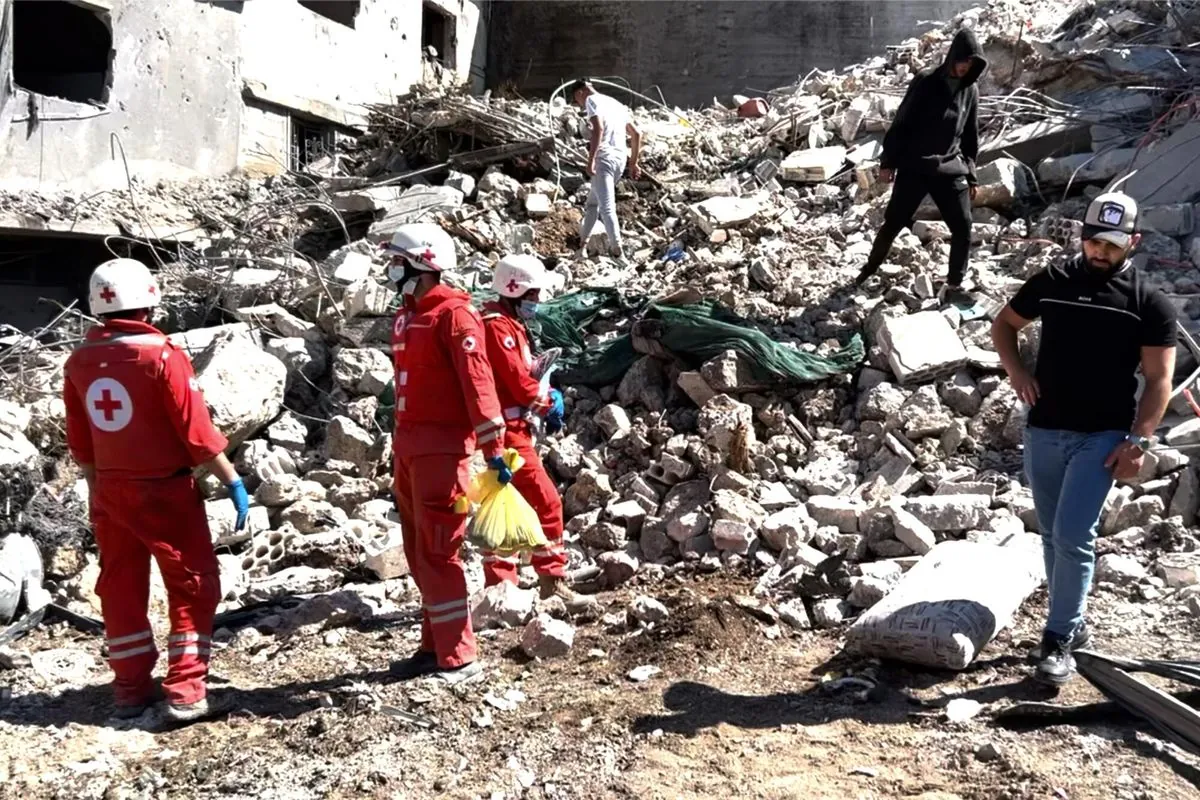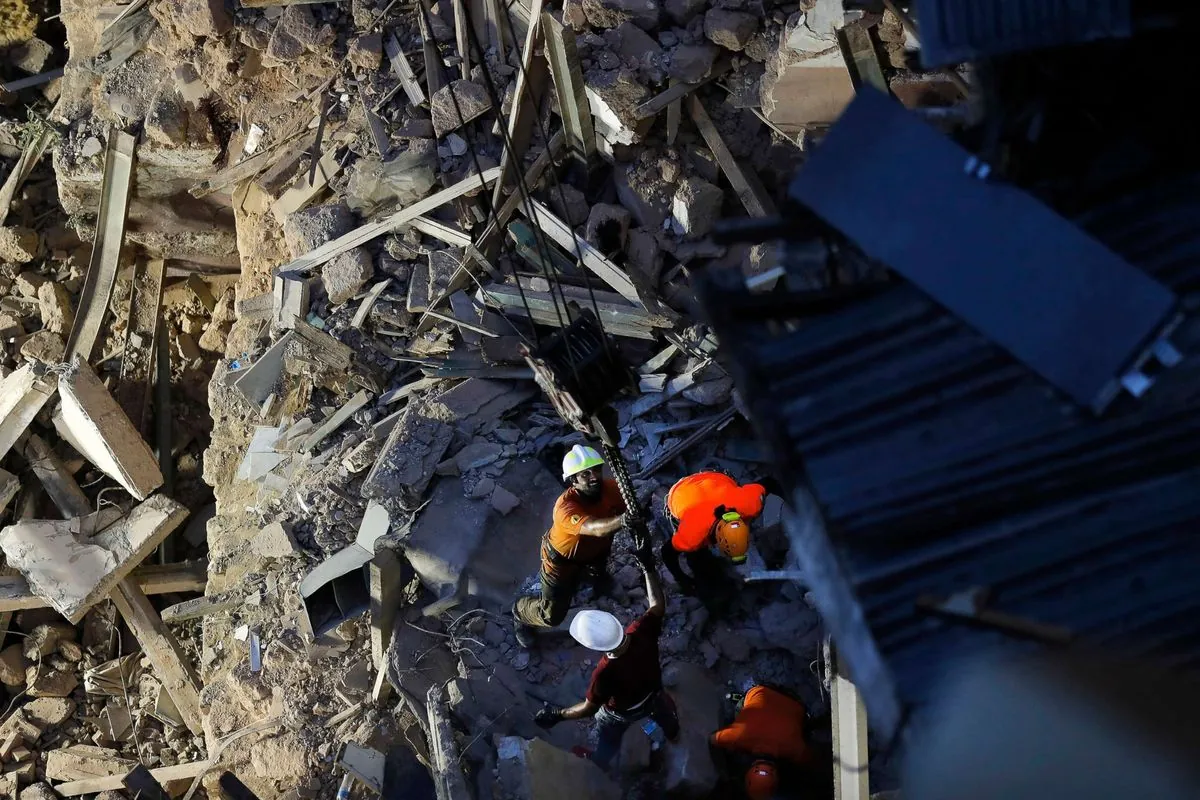Lebanon's Civil Defense Struggles Amid Israeli Airstrikes and Economic Crisis
Lebanese first responders face overwhelming challenges as Israeli airstrikes intensify. With limited resources and a crumbling infrastructure, civil defense teams work tirelessly to save lives in a country grappling with multiple crises.

In the wake of intensified Israeli airstrikes, Lebanon's civil defense forces are grappling with unprecedented challenges. The recent bombing outside Sidon, a city with a rich history dating back thousands of years, has left first responders struggling to cope with limited resources and equipment.
Mohamed Arkadan, a 38-year-old veteran of the civil defense forces, described the scene as unlike anything he had encountered in his 17-year career. The destruction was extensive, with dozens of apartments reduced to rubble on a hillside. Within 24 hours, Arkadan's team had recovered over 40 bodies, including those of children, and rescued 60 survivors.
Lebanon, a country with a population of approximately 6.8 million, has been facing multiple crises in recent years. The economic downturn that began in 2019 has been described as one of the worst globally since the mid-19th century. This crisis, coupled with the devastating 2020 Beirut port explosion – one of the largest non-nuclear explosions in history – has left the nation struggling to provide basic services.
The situation is further complicated by the country's political instability. Lebanon has been without a president since October 2022, and the lack of a functioning government for over two years has deepened the sense of abandonment felt by many citizens, including the first responders.
"We have zero capabilities, zero logistics. We have no gloves, no personal protection gear."
The ongoing conflict has led to the closure of over 30 primary health care centers in affected areas, according to the World Health Organization. The healthcare system, once considered among the best in the Middle East, is now overwhelmed and understaffed.
In Tyre, a UNESCO World Heritage site known for its ancient Phoenician ruins, the situation is particularly dire. Hassan Dbouk, head of the city's disaster management unit, reported that more than 8,000 people have sought refuge in the city. However, pre-positioned supplies are non-existent, and the movement of trucks carrying aid is fraught with danger due to the ongoing bombings.
The civil defense forces, established in 1945, are working tirelessly despite severe limitations. Hosein Faqih, head of civil defense in Nabatiyeh province, highlighted the critical circumstances under which his team operates. With outdated equipment and a lack of protective gear, these brave individuals continue to serve their communities.

Lebanon's unique confessional political system, based on religious representation, has contributed to the complexity of the situation. The country's diverse religious landscape, with 18 officially recognized groups, adds another layer to the challenges faced by the nation.
As the cedar tree on the Lebanese flag stands as a symbol of resilience, so do the country's civil defense workers. Despite facing recurring conflicts with Israel since the 1970s and the current economic crisis that has seen the Lebanese pound lose over 90% of its value, these dedicated individuals continue to be the safety net for their fellow citizens.
The international community has recognized the severity of the situation, with the U.N. allocating $24 million in emergency funding. However, as the conflict escalates and resources dwindle, the resilience of Lebanon's first responders is being tested like never before.


































